Curriculum and Assessment
Curriculum Mission Statement
“Our knowledge-rich curriculum will empower young people to succeed in a competitive world”
It is our aim to provide a broad, knowledge rich curriculum that enables our students to develop on a personal and academic basis. We provide Careers Education, Information, Advice and Guidance and Relationships and Sex Education (RSE) within the curriculum and offer a wide range of subjects to meet the needs of students seeking employment and further education both locally, nationally and internationally.
As a school, we have a responsibility to ensure a rich curriculum that enables young people to succeed in an increasingly unknown future. We are proud of the breadth and depth of our curriculum, the academic rigour, the cultural capital embedded, and our whole school drive to develop reading across lessons and beyond. In caring for our young people, they can achieve the aims of the Budehaven Curriculum Intent in a personal way in order to be successful.
Our intent is achieved through the high aspirations set out in a clearly sequenced curriculum that prepares students to be successful in the competitive world. The detail of the curriculum is in the department pages at the bottom of this page.
Curriculum Definition
“The curriculum is a framework for setting out the aims of a programme of education, including the knowledge and skills to be gained at each stage (intent); for translating that framework over time into a structure and narrative, within an institutional context (implementation) and for evaluating what knowledge and skills pupils have gained against expectations (impact/achievement).” Ofsted
Curriculum Purpose
At Budehaven Community School, it is our intent that all learners have access to a high quality, relevant and challenging curriculum. Learners experience a broad and balanced curriculum that promotes intellectual curiosity and prepares them for the future.
Our aim is to deliver a coherent curriculum that inspires and builds on developing learners’ knowledge and skills, helping them to become successful, life-long learners, confident individuals and responsible citizens. The curriculum embraces creativity alongside a mix of more traditional subjects, blended with extensive extracurricular enrichment opportunities, placing a high value on students’ spiritual, moral, cultural, mental, emotional and physical development.
Key Stage 3 consists of three exciting years for our pupils. Before long, they will be guided to make informed subject choices and increase their specialist focus for GCSE study. Before they do this, we want them to experience the richness that each subject has to offer: the best of what has been thought and said. We believe that our pupils should have the opportunity to acquire deep knowledge in each of the subject disciplines, and we see Year 9 as the year in which pupils will achieve the greatest depth in subjects that they can use in their adult life, even if they do not take them as GCSE options.
Pupils use the skills they learn through their Careers Education, Information, Advice and Guidance provision, built throughout Key Stage 3, to select four optional subjects to study at GCSE in Key Stage 4. In Key Stage 5 students have a choice of subjects to study at Level 3. There is also the opportunity for students who need to improve their English or mathematics GCSE grades to do so.
In all Key Stages, Subject leaders have carefully chosen the most powerful knowledge, which pupils will benefit from knowing as they move into GCSE and A level study. This is laid out in curriculum roadmaps for students and parents. Regular low stakes quizzing occurs throughout the year to aid spaced retrieval of key knowledge and facts. This feeds into a planned assessment programme of twice-yearly summative assessments and formative assessments in the classroom. These check upon the knowledge learnt by students and have planned actions in the classroom to enhance students’ learning, as well as providing clear progress data to all stakeholders that can be used to set future goals.
We make decisions that are informed by evidence. For example, we know that the most able pupils benefit slightly when they are taught in classes grouped by ability. We also know that mixed ability can often benefit middle and low prior attaining pupils. For pupils with special educational needs and/or disabilities, it is important that they have opportunities to learn alongside pupils who do not face such challenges. We strive to make balanced and ethical decisions, and so we have ensured that there are opportunities for all pupils to work in a range of different groupings, with the sole aim of benefiting their academic and personal development in as many ways as possible. Pupils are also grouped within the class, in a variety of ways, as best suits the activity. For example, pupils might work in mixed ability pairs for a discussion task and another time they might work on different tasks in groups based on their prior attainment or the most recent achievements, to enable stretch and challenge for all, at all levels. We also employ learning strategies based on the work of leading academics in their fields such as Doug Lemov and Gianfranco Conti, whose approaches, for example, are used across the Modern Languages Department to build confident, resilient young people.
Within each subject area page, we outline how each department meets our curriculum intent; To empower young people to succeed in a competitive world.





